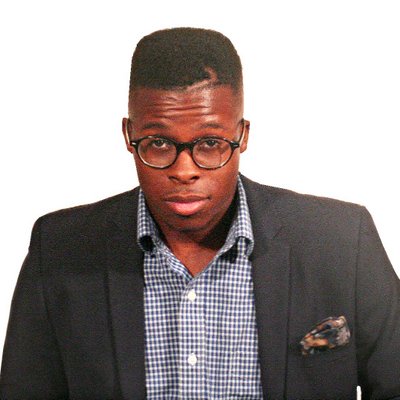Right On Tynes | Beyond the chatter about the decision not to indict Darren Wilson, the officer who shot Michael Brown in Ferguson, Missouri, or Daniel Pantaleo, who illegally choked Eric Garner in New York, there’s a bigger issue we are casually avoiding. The Melting Pot America created isn’t nationally important if it isn’t homogenous by it’s majority.
Honestly, I’m not one bit surprised.
I’m not surprised that Michael Brown’s killer, officer Darren Wilson or Eric Garner’s, Daniel Pantaleo, were not indicted. It’s just where we currently are as a nation, with a faulty legal system that isn’t worth more than two heels of soggy bread for a sloppy judicial sandwich.
And, honestly, I’m not surprised that some King’s College students decided to voice their opinions, horribly by the way, on social media following the case’s announcement in the shrouded, bleak Ferguson, Missouri, neighborhood where Brown lost his life.
At this point, it’s typical of our college and of some of the students that attend the institution off a few back roads, near the woods of Wilkes Barre, PA, or “Pennsyltucky” whatever the preference.
It’s more about spoken patriotism, the protection of our fine police and legal system and reminding those who speak out against the former that they can take the first flight out of the country if they don’t like it.
The laughable part is: it’s not only King’s students that reacted poorly. It was a nationwide faux pas. The first thing a majority of people saw when they turned on their televisions was things burning.
So, they made comments about the sanctity of America and it’s flag. Peaceful protests immediately turned to “riots”, though the minority of protestors were looting and rioting.
It seems like we’ve all missed something here. It probably starts and ends, no matter one’s slant, on an 18-year old teenager being murdered midday and left in the street for four hours in a quasi-racist town in the American South.
But the poor use of technology also started an internet revolution. For as bad as a tool that Twitter is in these situations of national divide, it showed the human side of the country.
“This situation didn’t dramatically affect the way I saw the world, but instead it confirmed for me that the world isn’t as apathetic as things are being shown,” said Jordyn Holman, a reporter for Variety Magazine and the Daily Trojan, the University of Southern California’s daily, independent newspaper.
“The fact that people halfway across the country in Los Angeles were planning how they would take a stand and show their camaraderie with those in Ferguson, Mo., was a great confirmation that people feel united to one another. Particularly in this technology driven world.”
The main talking point in this series of tragic events is that Americans, specifically the majority and definitely the younger generation, seemingly have an issue with discussing apparent racism, injustice, or – currently – militarized police brutality in our country.
Instead, they point to the negatives surrounding cases like these. We salute officers like Wilson and bash those who stand against him, for whatever reason. Don’t believe me? Ask the St. Louis Police Department how they felt about five St. Louis Rams players showing solidarity for their community before a recent game.
Don’t believe police brutality toward black teenagers is an issue? Ask ProPublica whose grim report showed that young black males in recent years are 21 times more likely of being shot dead by police than young white men.
Don’t believe we, as a nation, are desensitized to the Melting Pot that we created? Ask the Pew Research Center, whose survey showed that seven of 10 African-Americans, and four of 10 Caucasian Americans felt black people were treated more unfairly than white people when dealing with police.
Whether we dodge this for eternity, it is apparent: there is a difference when it comes to treatment for Americans in America, the preferential preferred to the homogenous majority.
It’s not an indictment. It’s not a jab. It’s something we need to desperately start talking about. And I mean all of us.
“That process of taking a stand on something, when you look at things that compel people, there’s logic, passion and emotion, logos, ethos and pathos,” said Dr. Sunny Weiland, an assistant professor of Education and Chemistry at King’s College.
“When you think of considering alternate perspectives and evidence, it’s important that we inform ourselves by looking for evidence that might not be right in front of us to inform our responses to things…we need to be thoughtful and mindful to consider multiple perspectives and inform our decisions.”
We’ve come to a point in America’s bloody history that is drawing parallels to it’s past. To say that the country has made “progress” when it comes to race relations, is assuming that people of color didn’t have equality before today.
My parents shouldn’t of had to tell me before I turned 13 that I can’t wear dark hoodies in certain neighborhoods. My friends shouldn’t be terrified when a police car pulls them over that they might step out and be blasted onto a sidewalk. My lexicon shouldn’t be inferred as “white” because it’s different to the stereotypical tongues that have been popularized on television sets.
That’s not equality.
This isn’t a white vs. black thing. This is a white, brown, black, and every color under the sun thing. This is an us thing. This is an American problem.
It isn’t something that’s popular because of Mike Brown. It’s something that’s been continued since Emmett Till, since Sean Bell, since Trayvon Martin, since Oscar Grant, since Eric Garner, since Amadou Diallo, since Tamir Rice, since the next time you hear about another case like this next year.
And if you’re tired of talking about racism, imagine how tired people of color are because they live it.
“I’m optimistic that we can encourage people and educate them to consider alternate perspectives,” Dr. Weiland said. “Through education, collaboration, through communication. Those C’s become really important. And education is a great way to do that.”
So, what’s the price of a black man’s life? I checked the toe tag, not one 0 in sight.
Tyler R. Tynes is a college senior from Philly studying mass communications. His email address is TylerTynes@Kings.edu. HIS OPINIONS ALSO DO NOT EXPRESS THOSE OF WRKC OR ITS STAFF. “Right On Tynes” appears every Friday. Follow him on Twitter @TylerRickyTynes

